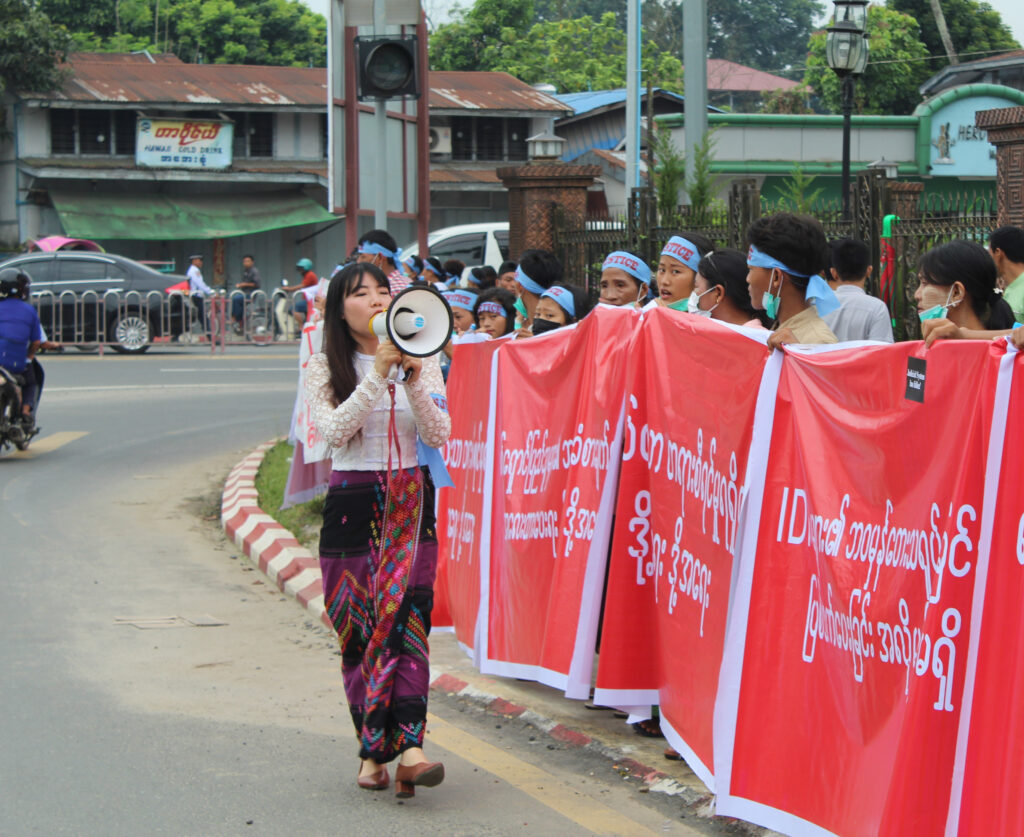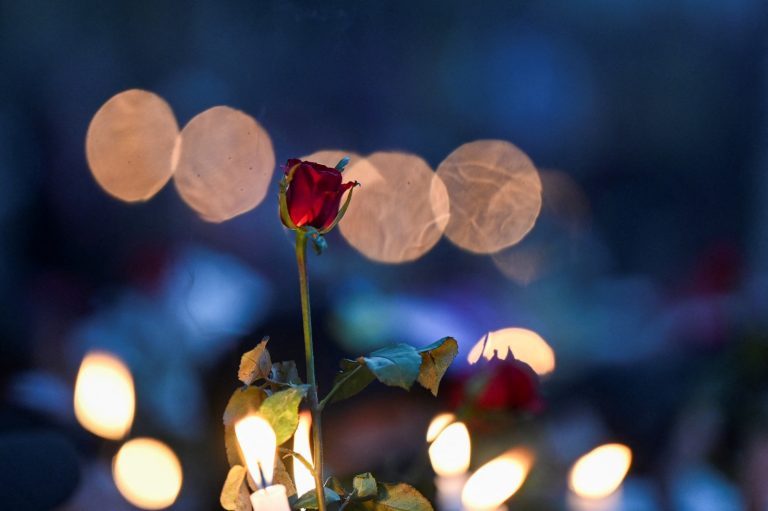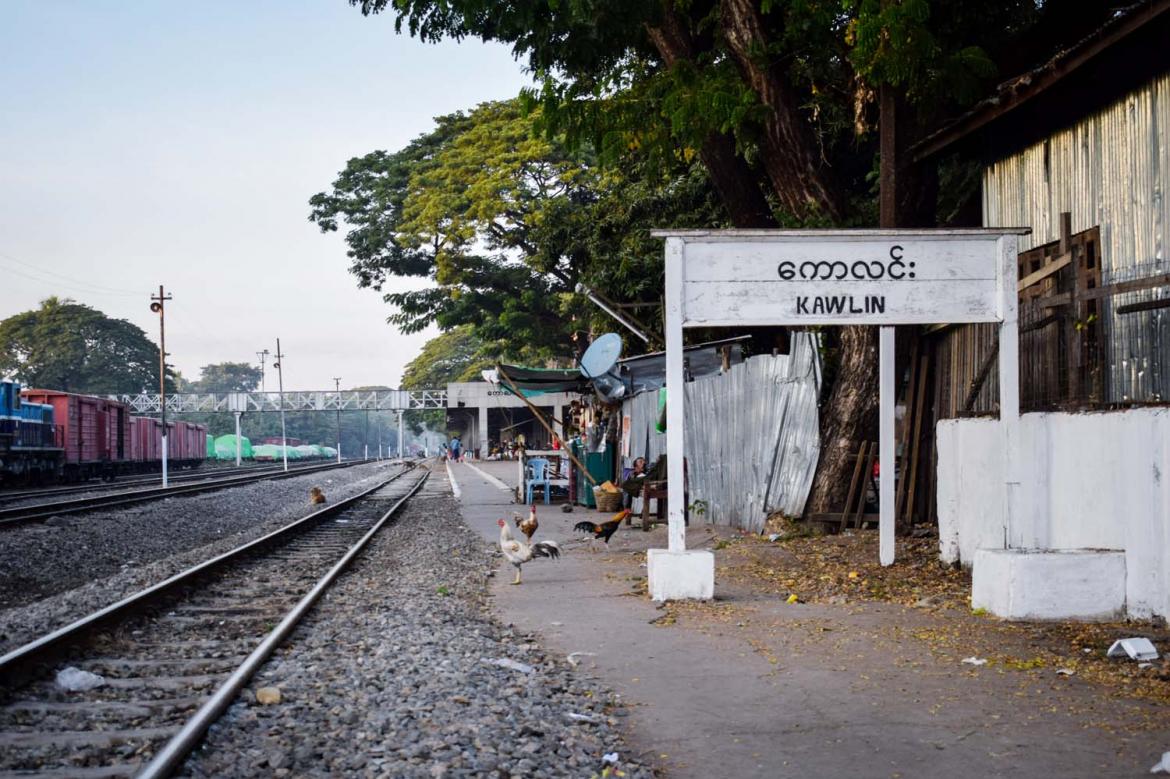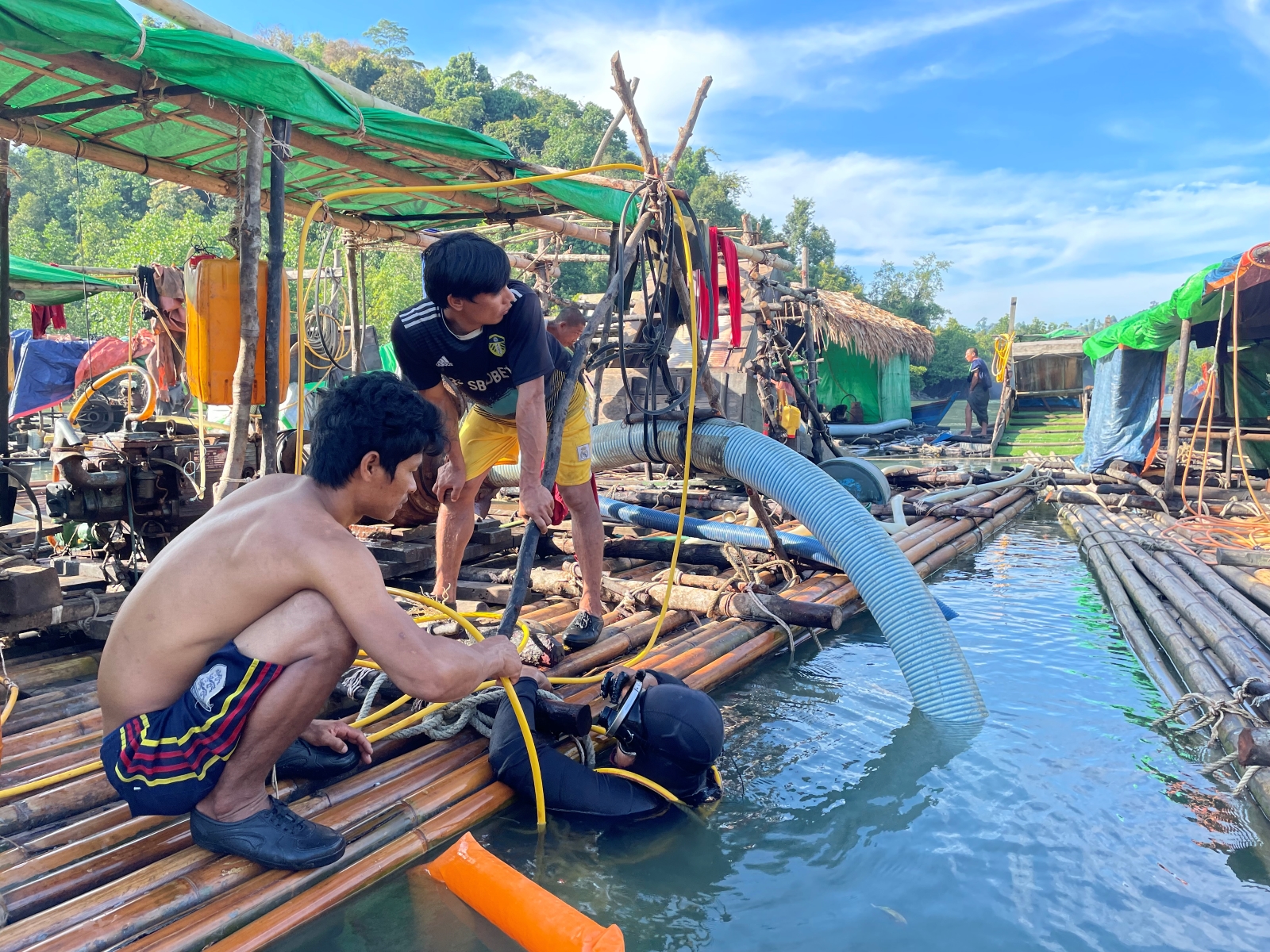The spokesperson of the Kachin State Civilian Movement discusses resource governance, resisting the patriarchy and the role of civil society in holding the Kachin Independence Organization to account.
By Hpan Ja Brang and Emily Fishbein
This interview was conducted in Burmese and translated by Hpan Ja Brang, and was edited for length and clarity by Emily Fishbein. It follows a Frontier feature on how pressure from the Kachin public overturned a rare earth mining project in KIO territory.
How has the 2021 military coup affected the Kachin activist movement?
Everyone in Myanmar is familiar with the countrywide revolution in response to the 2021 military coup, but for Kachin people, our revolution started in 1960. Ever since, we have had our own revolutionary government, the Kachin Independence Organization.
Before 2015, the Kachin public was weak in our ability to critically analyse the KIO and its actions. Under the [post-2015] National League for Democracy government, with the support of civil society organisations, people became more aware of their rights. But even though we talked about matters related to democracy, we unknowingly neglected to talk about the KIO.
This Spring Revolution further opened many Kachin people’s eyes regarding politics and rights. Now, people are taking a lot of risks to ask questions and challenge things that they had accepted in the past. Many people are asking the KIO government to change. We are doing this because we still have high expectations. I see it as a good impact – that the KIO government will have to fix itself from now on when building awm dawm, the self-determination that we want. The government has to listen to the voice of the Kachin people.
How would you describe the current situation for Kachin activists and civil society?
The military is always watching us with the threat of dangerous legal charges, and we also have to consider how the KIO might respond to our work. Still, we are continuing as much as we can.
From the beginning, we have discussed the Kachin nation-building process as well as how we should approach sensitive issues. Some people say we should keep certain issues to ourselves because talking about them too much could weaken our Kachin community. On the other hand, some people say that we should speak out.
In my view, no issue should be censored or avoided anymore. In this revolution, ethnic nationalities across Myanmar are all coming together and struggling to achieve our self-determination and rights. We really need to maintain our ethics and our position. Otherwise, when [junta chief Senior General] Min Aung Hlaing’s military falls, problems will keep coming up among our respective ethnic groups. We have to establish our values starting now, so that we can build a nation that respects human dignity.
What do you see as the successes and challenges of Kachin civil society since the coup?
Kachin civil society organisations have helped to make the public more aware of various issues and to check and balance the KIO government. Still, we face limited channels of engagement with Kachin institutions including the KIO. I would like to see the KIO give activists and civil society more of a platform and do more to encourage public awareness.
Another challenge we face is that the KIO goes through religious leaders to communicate with the Kachin public regarding politics and the revolution. This approach creates barriers for activists and civil society. I would like to see the KIO do more to strengthen its accountability and responsibility to the Kachin public, including by establishing its own constitution that protects the rights of the people in areas it administers.
In April, the KIO cancelled a rare earth mining project in its territory in response to protests from the Kachin public. Would you like to say anything in response to that case?
Rare earth mining is environmentally harmful. It uses toxic chemical acids that can poison the water and cause irreparable environmental damage. The project had been agreed upon without the consent of the local people. Everyone knows that this is a revolutionary period, but that doesn’t justify business activities that can destroy our country for individual interests. We really need to carefully observe the KIO government’s actions and make sure that local people in conflict-affected areas don’t get exploited under the name of development, nationalism and war funds. The KIO must take responsibility over the areas it administers and act in a way to satisfy the local people.
The KIO decision to stop rare earth mining brought an abundance of good expectations and trust from Kachin people. As a revolutionary government, the trust from its people is ultimately important. A revolution without the people’s support is futile and may fail.
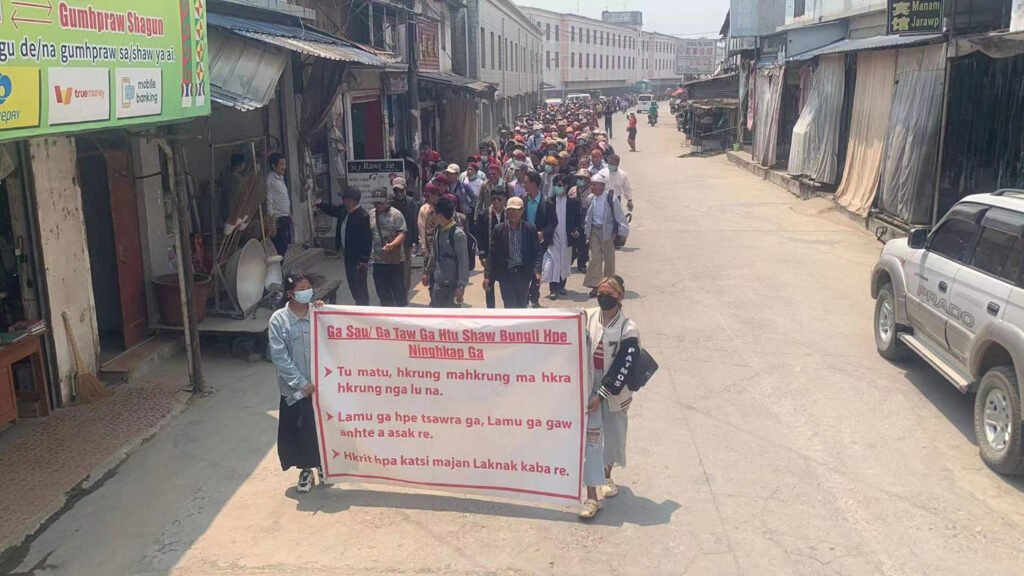
What are the challenges to natural resource governance in KIO areas?
Natural resource governance is a sensitive issue in Kachin society. In the past, people were less aware about environmental issues and their land and environmental rights, but over time, as people came to know more, problems really started coming up between local people and businesspeople, as well as between local people and groups administering the areas where they lived, whether it was the KIO or other groups.
Even before the recent rare earth mining case, there was also controversy over other environmental issues. Looking at the Hpakant jade mines, people die in landslides every year, and in the Myitsone area, the KIO gave permission to businessmen to mine for gold. But it is hard to talk about these issues as an activist because the KIO government uses the income from resources both to fund its revolution and to promote opportunities and development for Kachin people. Additionally, so many groups within Kachin society are involved in natural resource extraction, whether it’s gold, amber or jade.
In 2019, during a Kachin national conference at the KIO headquarters of Laiza, a natural resource policy was developed under the shawng lam mung masa jasat hpung (SMJH), a Kachin legislative body. This policy could have a big impact toward addressing the environmental controversies in Kachin, but even though the Kachin public has approved it, the KIO hasn’t implemented it yet. It means that there is still not a formal accountability mechanism for resource extraction in KIO areas.
What challenges do you face as an activist?
Even though we have many chances to speak out and make changes during this revolution, there are still many things that we, Kachin people, have to change within ourselves, our society and our institutions.
In this Spring Revolution, people are coming together to abolish the 2008 Constitution and resist all forms of dictatorship. When we talk about all forms of dictatorship, that includes patriarchy. In my view, our weakness as a Kachin society is that patriarchy unknowingly became very strongly embedded in our institutions – whether religious institutions, the revolutionary army structure, cultural associations or even our own households. From business to politics to religion, women are often excluded from participation at the decisionmaking level, but Kachin society doesn’t really provide a space to raise these issues.
In the past, I strongly advocated for change related to gender issues. I used to talk a lot about how anyone should be able to serve in a decisionmaking role according to their ability, and in 2022, I led a campaign advocating for the Kachin Baptist Convention to allow women’s ordination. But when I tried to break the chains on these issues, I faced a lot of pressure from Kachin society and religious institutions, and it affected my reputation too. Some people looked down on me for talking a lot about women’s rights. People called me useless and criticised me for not using my political platform well. Group leaders asked me why, at this time when we are fighting against Min Aung Hlaing, I was talking about this stuff. Some people accused me of being an opportunist and some people said I was destroying Kachin tradition and culture. People from my own Kachin community targeted me with a lot of hate speech and misogynistic comments on social media.
Additionally, I was neglected by some institutions in which I used to participate. They stopped making a space for me. Other activists who try hard and take big risks to speak out regarding women’s rights also get socially excluded and left out of meetings. Although we aren’t sexually harassed or abused, it still affects us mentally and leaves us feeling like we don’t fit into Kachin society.
Even in my own family, some people say that because I’m an activist and a feminist, I can’t be a good housewife, and they want me to change my career. All of this really affected my mental health and caused me to doubt myself. I couldn’t bear the pressure from my own society, and felt ashamed to talk about some things openly. It led me to censor myself. I’m ashamed to say that I can’t talk about these things as much as I want. I don’t dare to call myself a women’s activist anymore.
How has the coup affected your sense of safety?
After the coup, I chose not to take refuge in another country because I believe there is still a lot for me to do here for my Kachin society. At the same time, my security concerns really increased. People serving under the State Administration Council [as Myanmar’s military junta is called] are always interested in what I am up to and sometimes, I can see soldiers surveilling my house. I can’t go around freely and I stopped communicating with some of my friends or meeting with people socially due to safety concerns, so I became isolated. Sometimes, when I go on Facebook and see memories come up, it is unbearable.
What motivates you to keep speaking out as an activist in spite of all of these challenges?
I was born and raised in an area of Tanai Township administered by the KIO. I have experienced intense fighting between the KIO’s armed wing, the Kachin Independence Army, and the Myanmar military. I have also seen a lot of discrimination and underdevelopment. I don’t want to transfer that to the next generation. I really want my Kachin society to develop based on human dignity, equality and social harmony. In order to make as much of a change as I can, I am still living in my country and taking these risks as an activist.


